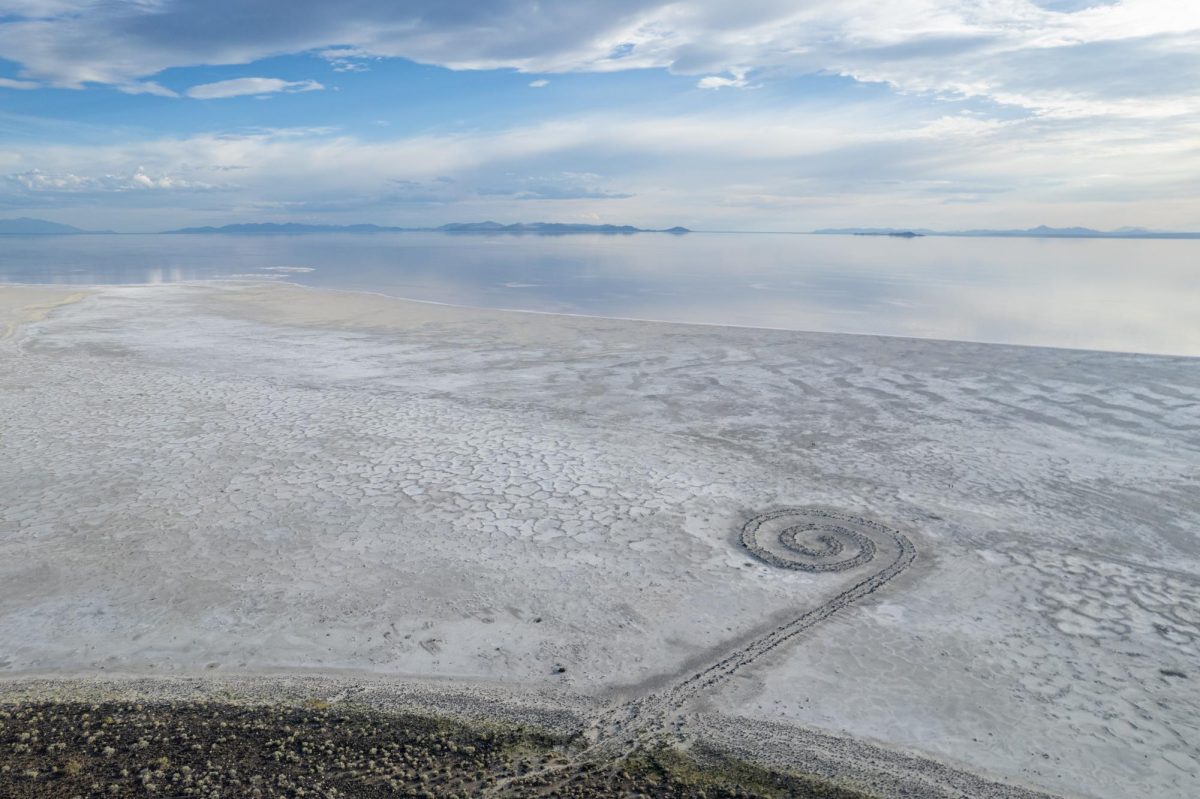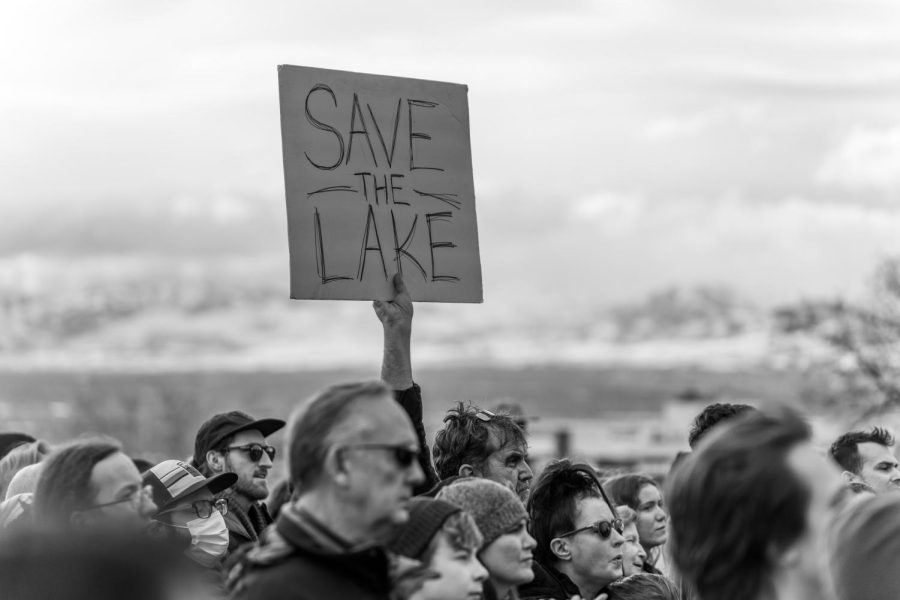Our world is in crisis.
The atmosphere currently contains more CO2 than at any time in human history. Global temperatures are rising, which in turn has led to rising sea levels and rapidly shrinking wildlife populations. As the growing human population demands more from technological and industrial advancements, our environmental impact is progressively becoming more extreme.
Utah encounters this crisis in a unique way — the Great Salt Lake’s water levels are dangerously low. This endangers the health of a critical ecosystem and the lake effect, which provides atmospheric moisture, encourages precipitation and provides Utah’s world-class snow.

While it may be easy to shift blame to a changing climate, the problem is largely overconsumption of water.
We are haphazardly diverting water from the lake for our own use. Calling for action from policymakers plays a crucial role, but tangible change begins with individual behavior.
Individual Accountability
In the face of phenomena like deforestation and water pollution, society seems unwilling to acknowledge a problem. Yet, people often place the onus of environmental activism solely on corporations.
The Sierra Club explains this misleading emphasis, citing environmental advocates who call individual behavior change “a distraction — not an action.” While it won’t solve the problem on its own, taking personal accountability represents a vital step in conservation.
In an article for The Sierra Club, Jason Mark expressed his take on the matter.
“A fixation on system change alone opens the door to a kind of cynical self-absolution that divorces personal commitment from political belief,” he wrote.
Movements like the plant-based diet have inspired a fascinating degree of cynicism, regardless of political belief. At the same time, vegan diets are proven to massively reduce environmental impacts.
Vegan diets result “in 75% less climate-heating emissions, water pollution and land use than diets in which more than 100 grams of meat a day was eaten,” Carrington said. “Vegan diets also cut the destruction of wildlife by 66% and water use by 54%.”
Yet, advocates and policymakers hesitate to dictate people’s consumption. Many people do not feel compelled to change any personal behavior for the sake of environmental preservation.
Calling for individual change does not imply behavior reversal. Reducing carbon footprint is not an approach that’s all-or-nothing, but it does require consciously adapting to our reality.
Your Water, Our Water
Records show that precipitation patterns around the Great Salt Lake have averaged out over the last 170 years. The amount of water flowing into the lake should, in theory, be consistent. Yet, the lake continues to shrink.
“Every year, people living in the region divert 3.3 trillion liters of water from the handful of streams feeding into it,” the study reported. “The team concluded that humans are triggering the decline by consuming stream water before it replenishes the lake.”
Whether it be for personal or recreational use, the lake’s decline correlates with water consumption. With that in mind, the community must be able to separate accountability from blame. We are responsible for our personal water usage, but that does not imply that any reason for consumption is invaluable. Instead, consuming mindfully is vital. Acknowledging that we are part of the problem is the first step in change — it is not a matter of moral inferiority.
Katie Newburn, education and outreach director for FRIENDS of Great Salt Lake, explained the importance of action.
“Utah is the fastest growing state in the nation — it’s essential that how we grow is in a water-efficient manner and in a manner that is effectively planning for the water demands of the future,” Newburn said in an interview with the Daily Utah Chronicle.
Stewardship of the planet comes with personal responsibility.
Rallying in support of climate movements or calling policymakers to take action for the Great Salt Lake is an important part of advocacy. However, not all policy change impacts societal behavior.
Calling for a more humane and environmentally conscious meat industry does not change the demand for animal products. However, a small cultural shift in their consumption can minimize the impact of agriculture. The same applies to water consumption and the Great Salt Lake.
Mindfully interacting with the environment represents an investment in the future. Saving our Great Salt Lake and other ecosystems across the globe isn’t their problem — it’s ours.




